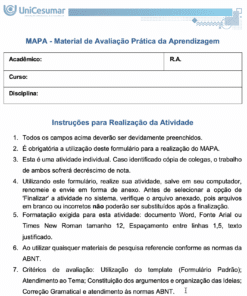ATIVIDADE 1 – LET – LÍNGUA INGLESA II – 53_2024
| Intercultural Communication Skills
Intercultural communication skills are those required to communicate, or share information, with people from other cultures and social groups. While language skills may be an important part of intercultural communication, they are by no means the only requirement. Intercultural communication also requires an understanding that different cultures have different customs, standards, social mores, and even thought patterns. Finally, good intercultural communication skills require a willingness to accept differences and adapt to them. A Starting Point for Intercultural Communication A desire for intercultural communication starts from the point of view that communication is better if it is constructive, and does not suffer from misunderstandings and breakdowns. Intercultural communication requires both knowledge and skills. It also requires understanding and empathy. Effective intercultural communication is a vital skill for anyone working across countries or continents, including those working for multinational companies either in their home country or abroad (expatriates). It is also crucial for anyone working with people from other cultures to avoid misunderstandings and even offence. Those studying languages often encounter issues of intercultural communication. Knowledge for Intercultural Communication Key areas of knowledge for those wanting to improve their intercultural communication are: some knowledge of the cultures, organisations and institutions, history and general way of living of different communities and nations. Recognition that these aspects affect behavioural norms. For example, there is considerable ‘history’ between the Greeks and Turks, and therefore it may be considered potentially a problem to serve Turkish food to a Greek person. An understanding of how culture can affect communication and language. For example, people from Nordic countries are often said to speak more directly than native English speakers who tend to use more ‘polite’ language. Scandinavians in the UK have reported causing offence to English people by failing to say ‘please’ and ‘thank you’ enough. Some understanding of the conventions that may govern behaviour in certain specific intercultural environments, such as views on the role of women, or the licence (or otherwise) permitted to children. Crucially, awareness of your own and other people’s beliefs and values, and a willingness to recognise when these may clash. Sensitivity towards cultural stereotypes that may affect and interfere with intercultural communication. Applying Your Knowledge Once you have developed this knowledge and understanding, you can start to apply it to your communications across cultures and even languages. Some useful starting points may be: Demonstrate your willingness to meet others at least halfway by learning a few phrases in their language. This is easy if you know that you’re going on holiday somewhere, but it’s also important for expatriate assignments and other business trips. A few phrases, even if it’s only ‘Good morning’, ‘good evening’, and ‘thank you’, will go a long way. There are plenty of free language resources available on the internet so there is no excuse for ignorance.(…) An Understanding of Difference Good intercultural communication fundamentally requires intercultural awareness, an understanding that different cultures have different standards and norms. But more, it requires an understanding that individuals are shaped, but not bounded, by their cultural background and that, sometimes, you have to meet people more than halfway.(…) Adaptado de: <https://www.skillsyouneed.com/ips/intercultural-communication.html>. |
A partir das informações contidas no texto dissertativo-argumentativo, redija um texto explicando: o que são habilidades interculturais; o que faz a comunicação intercultural ser bem-sucedida; os conhecimentos que você deve ter para ter uma boa comunicação intercultural; e como aplicar, na prática, seus conhecimentos sobre a comunicação intercultural. Depois de explicar esses aspectos, inclua, em seu texto, a importância de abordar esses aspectos da comunicação intercultural na sala de aula de língua inglesa. A seguir, aponte pelo menos duas atividades que você pode realizar para que seus alunos possam desenvolver a comunicação intercultural. Seu texto deve conter de 200 a 250 palavras e pode ser redigido em inglês ou em português.

Nossa equipe é composta por profissionais especializados em diversas áreas, o que nos permite oferecer uma assessoria completa na elaboração de uma ampla variedade de atividades. Estamos empenhados em garantir a autenticidade e originalidade de todos os trabalhos que realizamos.
Ficaríamos muito satisfeitos em poder ajudar você. Entre em contato conosco para solicitar o seu serviço.





